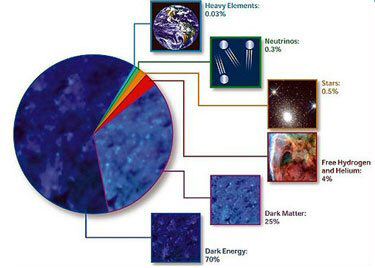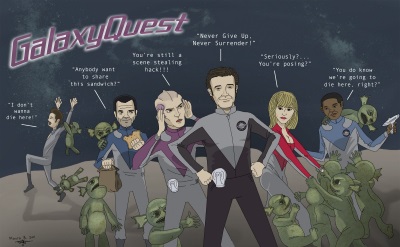Dark Matter
Real or Imaginery?
The documentaries of BBC are quite interesting. Sometimes they cover controversial issues as 'String Theory', 'Eleven Dimensions' and so.
I watched a BBC documentary called : "Is most of our universe missing?". It was such a dazzling experience that made me to re-think what I knew up to this point.
It seems that only %4 of all "what is there" in the universe is ever observable to us. The remaining? The remaining is either dark matter or dark energy.
It's quite interesting that science today is at the point beyond the comprehension of ordinary people. Furthermore, it's even hard to understand for me what's going on. I'm interested in science, especially in physics, with an engineering background, but sometimes it's beyond my comprehension.
David Spergel
he thinks that 96% of the universe is dark matter - from the BBC documentary
The Universe
It seems that we live in a universe that we do not see at al
For a long time, I was aware of this theory, but I regarded it rather a theory of extremist physicists. When I read Bill Bryson's book - The Short History of Nearly Everything I realized "it's serious".
We're in such an age that the scientific progress is beyond the comprehension of ordinary people.
Furthermore, I think we're just about to see astonishing discoveries in physics. I feel that these discoveries will blow away many of our beliefs and facts on our universe and our lives.
The Composition of our Universe
from the website of NASA
But Are We Sure?
Or, is dark matter a new bummer like Luminiferous Aether?
Till the first decades of 20th century, all the scientific community believed that the whole space was filled with an invisible substance called Luminiferous Aether (or simply Ether). The concept was first materialized by Newton and it was easily accepted by nearly everyone since then.
The scientists in those times needed a concept like Luminiferous Aether, because they believed that the light was a wave, and surely, the wave should propagate in something (like the water waves need water to propagate).
Now it seems us funny, but in those times, many scientists came up with evidences that the Ether really existed. Many PhD thesis were represented and accepted for researches on Ether. But on the other side, by the beginning of the twentieth century, lots of scientists made experiments that nullify the idea of such an Ether.
At last, by the Einstein's Relativity Theorem and with the concept that light in fact is composed of particles (photons more specifically). As a conclusion, light was not a wave, but compound of particles whose movement act like a wave. This new "paradigm shift" terminated the idea of Ether.
Now, similarly, many scientists believe that such a thing as dark matter, does not exist. The anomalies we observe may be (and should be) explained some other way. Maybe Newtonian Laws may vary for very very large masses.










